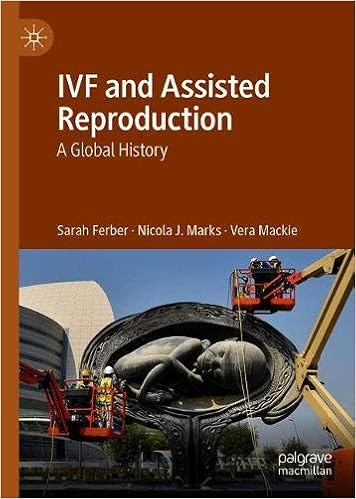
This is the first transnational history of IVF and assisted reproduction. It is a key text for scholars and students in social science, history, science and technology studies (STS), cultural studies, and gender and sexuality studies, and a resource for journalists, policymakers, and anyone interested in assisted reproduction. IVF was seen as revolutionary in 1978 when the first two IVF babies were born, in the UK and India. Assisted reproduction has now contributed to the birth of around ten million people. The book traces the work of IVF teams as they developed new techniques and laid the foundations of a multi-billion-dollar industry. It analyses the changing definitions and experience of infertility, the markets for eggs and children through surrogacy, cross-border reproductive treatment, and the impact of regulation. Using interviews with leading IVF figures, archives, media reports, and the latest science, it is a vital addition to the field of reproduction studies.
'In this book, the cultural and scientific imaginaries of assisted reproduction meet the obdurate histories of laboratory experiments, biological materials, and personal quests in a compelling account of the production of the global experience of assisted reproduction and its potential futures. From the first experiments in IVF to debates over regulation, from controversies to the future of gene editing and artificial wombs, this work provides a synoptic account of changes to reproduction wrought by technologies of IVF, its development and naturalisation as part of our reproductive repertoires. It is an important read for anyone interested in one of the most significant technological and social interventions ever developed.'
―Andrea Whittaker, Professor of Anthropology, Monash University, author of International Surrogacy as Disruptive Industry in Southeast Asia (2019)
---
4.7 out of 5 stars 8,117
Editorial Reviews
Review
'In this book, the cultural and scientific imaginaries of assisted reproduction meet the obdurate histories of laboratory experiments, biological materials, and personal quests in a compelling account of the production of the global experience of assisted reproduction and its potential futures. From the first experiments in IVF to debates over regulation, from controversies to the future of gene editing and artificial wombs, this work provides a synoptic account of changes to reproduction wrought by technologies of IVF, its development and naturalisation as part of our reproductive repertoires. It is an important read for anyone interested in one of the most significant technological and social interventions ever developed.'
―Andrea Whittaker, Professor, Monash University, Australia
This is the first transnational history of IVF and assisted reproduction. It is a key text for scholars and students in social science, history, science and technology studies (STS), cultural studies, and gender and sexuality studies, and a resource for journalists, policymakers, and anyone interested in assisted reproduction. IVF was seen as revolutionary in 1978 when the first two IVF babies were born, in the UK and India. Assisted reproduction has now contributed to the birth of around ten million people. The book traces the work of IVF teams as they developed new techniques and laid the foundations of a multi-billion-dollar industry. It analyses the changing definitions and experience of infertility, the markets for eggs and children through surrogacy, cross-border reproductive treatment, and the impact of regulation. Using interviews with leading IVF figures, archives, media reports, and the latest science, it is a vital addition to the field of reproduction studies.
Sarah Ferber is Professor of History at the University of Wollongong, Australia. Her books include: Bioethics in Historical Perspective (2013), and the co-edited The Reproductive Industry: Intimate Experiences and Global Processes (2019), and The Body Divided: Human Beings and Human ‘Material’ in Modern Medical History (2011).
Nicola J. Marks is Senior Lecturer at the University of Wollongong. She researches the social dimensions of science and medicine, including stem cell research and IVF, and is co-editor of The Reproductive Industry: Intimate Experiences and Global Processes (2019).
Vera Mackie is Senior Professor of Asian and International Studies at the University of Wollongong. She is co-author of Remembering Women’s Activism (2019), co-editor of The Reproductive Industry: Intimate Experiences and Global Processes (2019), and The Social Sciences in the Asian Century (2015).
Read more
No comments:
Post a Comment